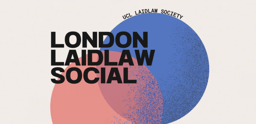LiA European Commission
The Directorate-General for International Partnerships (DG INTPA) is a crucial department within the European Commission designated to formulate and implement international development policies. Under the guidance of the European Commissioner for International Partnerships, it significantly contributes to the €300 billion Global Gateway strategy. DG INTPA is responsible for allocating funding to projects aligning with the EU's strategic priorities and the United Nations Sustainable Development Goals (UN SDGs), fostering sustainable development and addressing global challenges. In our work at DG INTPA, we honed in on the EU's strategic priorities in India in thematic areas like the transition to renewables or sustainable living, learning about the collaborative efforts between the EU and its international partners towards achieving sustainable and inclusive growth.
During my time at the Directorate-General for International Partnerships (DG INTPA), I was introduced to the EU's Global Gateway strategy. Our supervisor, Sarabjeet Hayer, gave us a unique insight into how the European Commission, EU member states, and multilateral development banks collaborate to contribute to this supranational strategy. It involves a complex network of complementary objectives, financial mechanisms, and collaborations.
The Global Gateway strategy aims to offer developing nations a better alternative to China's Belt and Road Initiative, which often comes with strings attached to its funding. The platform aims to provide transparency and reliability that Chinese-funded projects lack. With a budget of up to €300 billion from 2021 to 2027, the Global Gateway aims to improve international trade and invest in critical areas such as digital innovation, green energy, and other crucial sectors, making trade more resilient to future challenges. The EU's investment in sustainable infrastructure projects in developing countries across Asia shows how they are stepping up to offer an alternative to global infrastructure investments with billions of development aid. While working on projects in India focusing on green energy and sustainable living, I began to see the bigger picture of how the EU is investing in critical areas to help developing nations become more self-sufficient and sustainable over the long term.
In India, our work echoed the broader aim of the Global Gateway, which is to foster sustainable and inclusive growth. Seeing how our projects tied into this larger initiative to counterbalance China’s growing influence in global infrastructure was quite enlightening. The experience allowed me to grasp the extent of the EU's ambitions to establish stronger international partnerships and create a meaningful impact in regions significantly influenced by China's infrastructure initiatives. This experience helped me understand the EU's aspirations to develop stronger partnerships and significantly impact regions particularly affected by China's infrastructure initiatives. It also gave me a practical perspective on implementing high-level strategies related to international development policies and geopolitics.
Within the Directorate, collaboration was a core aspect of our work. I routinely liaised with members from various units due to the interconnected tasks of our directorates, deepening my understanding and facilitating effective information exchange. We also gained insight into engaging with external entities, such as Indian and Bhutanese ministerial officials and a parliamentary delegation from Vietnam. These engagements taught me how to foster long-term partnerships—seeing every step of the process, from establishing to maintaining relationships, instilled in me the significance of trust, adaptable problem-solving, and clear communication in international collaboration.



Please sign in
If you are a registered user on Laidlaw Scholars Network, please sign in